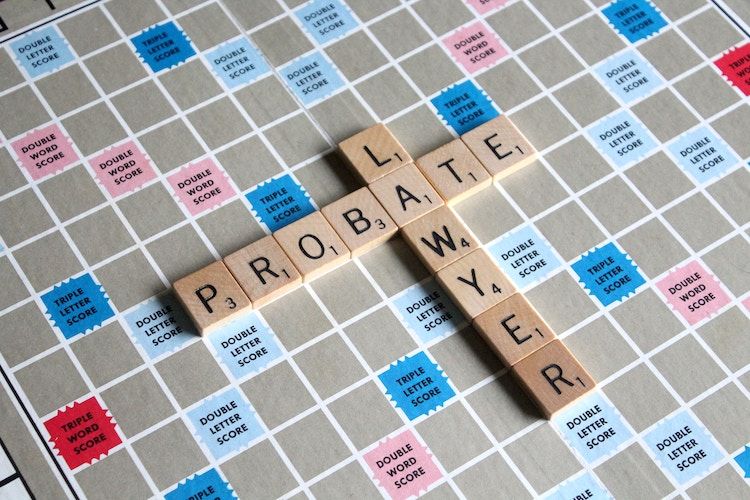What Is Probate and How Does It Work?
Probate. It means prove.
The centuries-old word also means “represent as good” and “judge by trial.” Today, probate refers to the legal process of proving that someone’s will is authentic. The purpose of the probate process is to confirm that the instructions left behind by a deceased person are valid and real.
If you’ve recently inherited assets (such as a house) or have been named as a beneficiary of someone who has passed, this guide gives an overview of how the probate process works, the key players and documents involved, and some of the common challenges you may encounter.
What happens in the probate process?
When a person passes away, the probate process:
- Ensures that the person’s belongings are identified and accounted for
- Appraises these assets to confirm the amount each belonging is worth
- Seeks out the creditors — people or companies who are owed money from the person who died
- Communicates with the people who will receive all the remaining assets
- Distributes the assets (belongings) as instructed in the will, after taxes and debts are paid
Carrying out these duties is complicated and involves a special court of law called a probate court. The judge presiding over a probate court decides how to fulfill the instructions left in the deceased person’s last will and testament. Probate can take a year to 18 months if the proceedings go smoothly.
Who is involved in the probate court process?
Several parties take part in the court-supervised process. Here are the main players you’ll need to know and their respective roles.
The Personal Representative: Executor or Administrator
When a person dies, someone else must take responsibility for winding up their affairs. There are typically two scenarios for determining who takes this role.
- If the person who passed away left a valid will: The probate court certifies the executor, who is named in the will, to manage the task. Once the executor has been confirmed and certified by the court, the estate’s assets (things of value like real estate, cars, jewelry, art, etc.) are vested in the executor, which is another way of saying that the executor is now in charge of distributing them. This means other people named in the will to inherit the assets cannot legally get any property just yet. The executor may transfer ownership to each person named in the will using a document called an executor’s deed. Normally, state law requires that the deed be witnessed and notarized. Finally, the deed gets recorded in the county.
- If there is no valid will: No will means no executor, so the probate court must appoint a third-party administrator to take over the role of personal representative on behalf of the estate. State law guides the selection of the administrator in order of preference. It can be the surviving spouse, an adult child, parent, sibling, and on down the list. This person then conveys interests in assets that were held by the person who died – distributing the belongings – using an administrator’s deed.
After the probate court appoints a personal representative, the executor or administrator must complete an inventory of the deceased person’s belongings of value (assets), the appraisals (assessing their value), and the notification to creditors that probate is underway.

The Attorney for the Personal Representative
The attorney for the personal representative guides and represents the estate’s executor or administrator in estate proceedings.
This is where the costs come in, which will vary state by state. In California, for example, the personal representative’s attorney receives 4% on the first $100,000, and a smaller percentage on the estate’s value beyond that amount.
The Creditors: Anyone owed money
In general, creditors must file a claim with the estate within a year from the date of death. If a personal representative rejects a timely filed creditor’s claim, the creditor has 90 days to act against the estate. California law offers a sample of proper notice to creditors that the estate is being probated.
Sometimes the executor must sell off property such as real estate to pay these debts. If so, the executor will need to petition the probate court to allow a sale of property. After the court-ordered sale closes, the estate can pay the debts.
The Beneficiaries: Recipients of the estate’s assets
The executor notifies the beneficiaries named in the will. Once all debts are resolved, the personal representative distributes the remaining property to the beneficiaries.
Sorting out the beneficiaries’ interests can get complicated. For example, sometimes the beneficiaries are the children, yet a surviving spouse already co-owns the same property that the children are to receive under the will. When this happens, unless there’s a separate legal agreement, a surviving spouse will continue to hold title — together with the children.
Of course, co-owners may decide among themselves to sell their interests. After probate is complete, the beneficiaries may do whatever they all agree upon with the property to which they’re entitled.
The Tax Collectors
An estate must pay taxes, both for the decedent, and for the estate. If the estate’s investments earn above a certain threshold, the personal representative will need to file a Fiduciary Income Tax return on or before April 15 in the year after death, as well as the decedent’s final personal income tax return. High-value estates have estate taxes due nine months after the date of death.
The Challengers
Will contests do happen. A contest can assert that the will doesn’t measure up to the state statute, or fails on any of the following grounds:
- Lack of intent. If a will or trust fails to clearly express the decedent’s intentions, it can be challenged in probate court.
- Incapacity, duress, or undue influence. A will can be challenged on the grounds that its maker could not understand its consequences. Or perhaps the will maker was vulnerable, and bullied into including certain provisions.
- Mistake or fraud. Bequests might have been issued based on wrong information or deception.
- Revocation. The will could have been rendered invalid by a more recent one.
Immediately after death of the testator (the subject of the last will and testament), a will or trust can be contested.

Who goes through probate?
Anyone who writes a will is effectively making their assets the subjects of a future probate proceeding.
A person who dies as the sole owner of real property must have the property probated after death.
Anyone who dies without a will, or leaves an invalid will, also leaves a case for the probate court to administer.
The rare person whose estate does not go through probate might have held all assets jointly with a surviving life partner who has survivorship rights to the property. Probate is unnecessary where a surviving co-owner, by law, simply absorbs the interests of the person who passed.
Or, perhaps the decedent transferred all assets into a living trust while alive. The person might have used a pour-over will to ensure any new acquisitions flowed automatically into the trust.
But even a trust will go into probate if its validity is contested, if the trust is not properly funded, or if assets did not pour over into the trust.
Further reading: Did You Inherit a House? What to Do Next
What if there’s no will?
When someone dies, the law mandates a good-faith and careful search for the will. Is no valid will is discovered, then the probate court reviews a petition to declare the deceased person intestate. State law controls the order of priority for the distribution of assets to new owners when a person dies intestate.
The probate process turns to state law to learn the order of succession of survivors’ rights to the estate. This differs from state to state.
If no legally recognized owner can be tracked down in a timely manner (usually five years), then the state government of the deceased person’s last address becomes the owner. In the unlikely scenario where the probate court goes down the priority list but cannot locate anyone to qualify as a listed beneficiary, the deceased person’s assets escheat to the state. Escheated property is increasingly rare, given today’s technologies that enable the probate courts to locate legally viable heirs.
What if there’s a will, but other documents are missing?
If you’re responsible for tracking down missing documents after someone has passed, you’ll need to contact their personal attorney, if applicable, and any financial institutions the decedent had business with.
Financial institutions are usually the first place personal representatives will look in the case of missing documents. Relevant life insurance and retirement accounts will have each accounts’ designated beneficiaries on file. This is vital. Account beneficiary designations take priority over any instructions in the will.
It’s also possible that a living trust was created, especially if the deceased had a personal lawyer. Most of the time a surviving spouse or close family member will know if they were named trustees. Another important document is a transfer on death deed, which can be used in some states to transfer property ownership outside of probate.
How does a transfer on death work?
Some people use a transfer on death deed in their estate planning, to transfer assets to a beneficiary outside of a will. California and some other states allow these deeds for real property such as a house.
How do you effect a transfer on death for a home title? We’ll use California’s procedure to illustrate:
- Obtain and fill out an affidavit of death form. A correctly completed form has a signature witnessed by a notary.
- Obtain a certified copy of the death certificate.
- Record the documents with the county where the home is.
- Complete the report for preliminary change of ownership.
- Pay applicable fees and taxes.
This process will not shield the property from the interested creditors. Any obligations based on the property’s value pass to the beneficiaries.
How do you simplify the process?
Looking for simplicity? A lot will depend on where the property is located.
Some states, as noted above, have sizable court or attorney fees set in stone. In other states, the fees are less daunting. And many states, California included, offer a form of simplified probate that can work for small estates. Speak with a wills and estates lawyer for case-specific estate planning guidance.
Ready to Get Started?
Sell as-is. Pay zero fees to Sundae. Move on your time. No repairs, cleanings, or showings.
